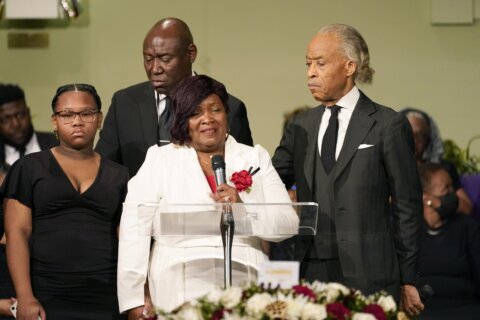MINNEAPOLIS (AP) — A man who escaped death row in Louisiana in 2012 after he was exonerated by DNA evidence for a murder he didn’t commit has died of COVID-19.
Damon Thibodeaux’s death earlier this month was “so unfair,” according to a Minneapolis attorney who worked to free Thibodeaux after 16 years behind bars, including 15 on death row, after he was convicted in the 1996 death of his 14-year-old step-cousin.
“I’m struggling to make peace with it, but you can’t,” said Steve Kaplan, the now-retired lawyer who helped clear Thibodeaux and assisted him in moving to Minnesota to restart his life.
Thibodeaux, who eventually settled with his family in Texas, was a long-haul trucker who landed in Jacksonville, Florida hospital with the coronavirus in early August. That was a few days after getting his first vaccine shot against the virus. After three weeks in and out of intensive care, the 47-year-old Thibodeaux was expecting to come home.
“Bro, I’m ready to get out of this place and come home,” he told his younger brother, David Thibodeaux, on the evening of Sept. 2. A few hours later, David’s phone rang again with a doctor asking for permission to stop resuscitation on Damon after his lungs had collapsed and his heart had stopped, the Star Tribune reported.
“My heart sunk,” David said in an interview with the newspaper last week. “I wasn’t just being asked to let my brother go. You’re asking me let my best friend go.”
Growing up, the brothers endured abuse from their mother’s ex-husband. Damon also was sexually abused by the man and later by another relative, a neighbor and eventually his grandfather. “We shared a lot of hardships together,” David said,
Damon Thibodeaux was a 22-year-old deckhand on a Mississippi River barge in July 1996 when his 14-year-old step-cousin went missing while Thibodeaux was at her family’s apartment. After the girl’s body was discovered along the river, Thibodeaux was subjected to a grueling interrogation that pushed him to confess to a crime he didn’t commit. A year later he was sentenced to die.
Kaplan and others from the Minneapolis law firm Fredrikson and Byron helped prove Thibodeaux’s innocence, noting that his confession didn’t match the physical evidence, that witness statements were inconsistent and that DNA tests showed no connection between him and the murder. The district attorney’s own expert concluded that Thibodeaux had falsely confessed to the crime
The conviction was overturned and he was set free in September 2012.
The lawyers who worked on his release said that rather than be angry and bitter about his path, Thibodeaux carried an easy smile along with optimism, kindness and grace.
“He had an impact on everyone who had a privilege of knowing him,” Kaplan said.
Copyright © 2024 The Associated Press. All rights reserved. This material may not be published, broadcast, written or redistributed.







